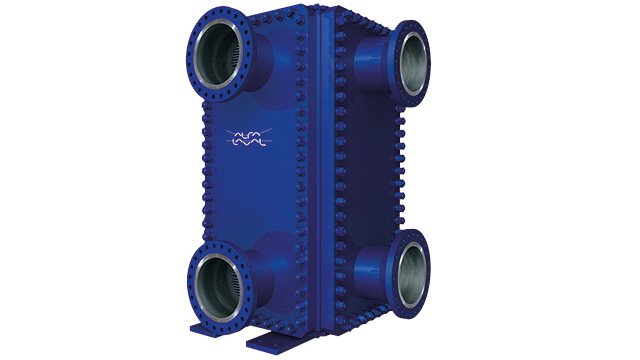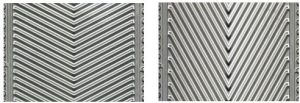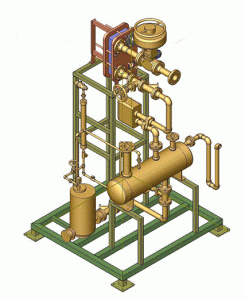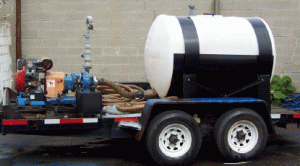The Compabloc heat exchanger is built around a pack of corrugated heat transfer plates, welded alternately to form channels. The complete plate pack slides inside a four-column carbon steel frame bolted to pressure-retaining heads at the top and bottom. Four removable side panels contain the fluid inlet and outlet connections, and baffles direct the fluid media back and forth through the channels.
The corrugated plate pattern in the Compabloc creates an exceptionally high degree of turbulence. This results in outstanding heat transfer efficiency, with an overall heat transfer coefficient two to four times greater than that available from a corresponding shell-and-tube unit. This means a Compabloc requires only 25–50% of the heat transfer area to provide the same effect as a corresponding tubular unit.
When the Compabloc is used as a condenser, the vapour enters from the top of the unit and condenses on the cold plates while passing through the plate pack. The condensate exits at the bottom. The cooling media is forced through several passes with a series of baffles. This, together with the plate corrugations, boosts heat transfer efficiency and keeps fouling to a minimum.
If the vapour contains non-condensable gases, a two-pass arrangement on the condensing side permits gas/liquid separation inside the Compabloc, eliminating any need for a special separator unit. The main condensation takes place in the first pass. Sub-cooling of the non-condensable gases takes place in the second pass, which also serves as a mist eliminator.
With its short flow path and large cross-section, the Compabloc is a perfect thermosiphon reboiler. The feed enters at the bottom of the unit. When the liquid passes between the heated plates, it is brought to boiling point and a mixture of vapour and liquid leaves the unit through the outlet at the top.




